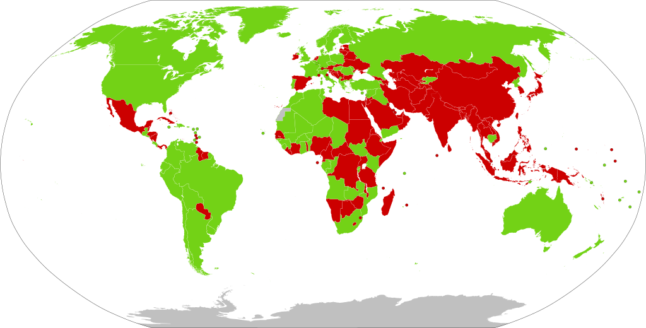Switzerland allows its citizens to have dual nationalities, but a number of countries around the world do not – meaning that those who become Swiss have to give up their original nationality.
Swiss citizens are allowed to acquire another nationality – or multiple nationalities in fact – and foreigners who are naturalised in Switzerland can maintain their original one, provided that the legislation in the other state does not require that they renounce their citizenship of origin.
Currently, just over 1 million people in Switzerland (about 19 percent of the population) are dual nationals – that would include foreigners who have gained Swiss nationality, and Swiss-born people who also have a passport for another country.
The most obvious benefit of dual nationality is the ability to live or spend unlimited time in both countries, without having to give up any rights in either. It may also include the ability to vote, although some countries restrict the voting rights of their non-resident citizens.
Advertisement
When it comes to Americans, a number of them choose to give up their US citizenship in order to avoid the complicated citizenship-based taxation rules for Americans.
READ ALSO: Why Americans in Switzerland renounced their US passport
Who cannot have more than one citizenship in Switzerland?
There are a range of countries which prohibit dual nationality – this is not specific to Switzerland, people from one of these countries would have to renounce their citizenship of any other country.
There are many reasons for these restrictions.
According to Henley & Partners consultancy specialising in residence and citizenship, “countries that prohibit dual citizenship do so for a range of reasons rooted in concerns over national identity, governance, and legal clarity. While the rationale differs across regions and political systems, the common thread is the desire to maintain a singular allegiance between the individual and the state.”
However, some countries that generally forbid dual citizenship will make exceptions in specific cases, so it is worth checking with your embassy about the latest rules and possible exceptions.
Countries that allow dual citizenship are shown in green on this map, whereas those that restrict it are red.

Map: NuclearVacuum, Heitordp via Wikimedia Commons
The following countries don’t recognise dual citizenship:
Andorra
Azerbaijan
Bahamas
Bahrain
Belarus
Botswana
Bhutan
China
Cuba
Congo
Djibouti
Ethiopia
Haiti
India
Indonesia
Iran
Japan
Kazakhstan
Kuwait
Kyrgyzstan
Laos
Macau
Malaysia
Marshall Islands
Micronesia
Monaco
Mongolia
Mozambique
Myanmar
Nepal
North Korea
Oman
Papua New Guinea
Qatar
San Marino
Saudi Arabia
Singapore
Slovakia
Solomon Islands
Swaziland
Tajikistan
Thailand
Tonga
Turkmenistan
Uzbekistan
United Arab Emirates
Venezuela
Vietnam
Yemen
Zimbabwe
This means that if you are a citizen of one of these countries and become Swiss, you will have to give up your other passport.



